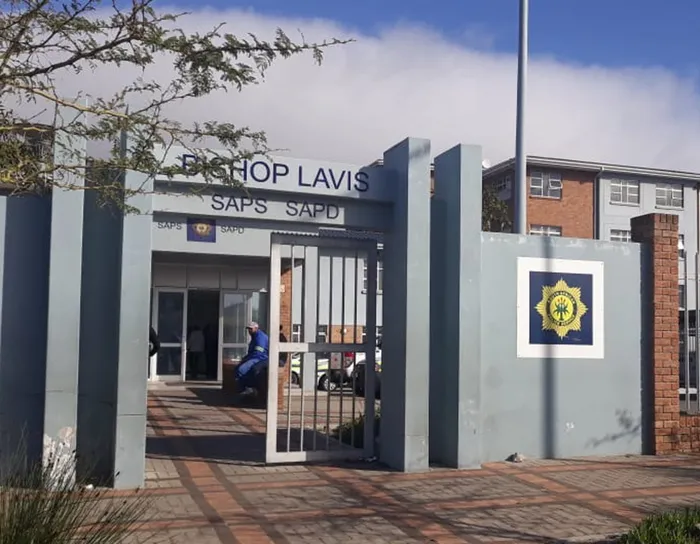Demand for judicial inquiry after Bishop Lavis mass shooting

Bishop Lavis Police Station.
Image: File picture
Not only has the recent mass shooting in Bishop Lavis been condemned by the Muslim Judicial Council (MJC), but it has also sparked a demand for a judicial inquiry into the systemic failure to address gang violence.
Four people, including an elderly woman, were gunned down in a house in Bishop Lavis on Friday night.
The mass killing comes amid a deadly spate of shootings across the Cape Flats over the past two weeks, with at least five mass shootings reported in Mitchells Plain, Kraaifontein, Mfuleni, and Lower Crossroads.
SAPS spokesperson Lieutenant-General Malcolm Pojie confirmed that detectives are investigating the Bishop Lavis killings.
“Preliminary information reveals that two unknown gunmen, who fled the scene in a VW Polo, accosted the four in a bedroom, opened fire, and fatally shot the deceased, who all succumbed to gunshot wounds to their upper bodies,” Pojie said.
Bishop Lavis Community Policing Forum (CPF) has condemned the shooting, saying that they are devastated and outraged by the relentless gang violence that continues to claim innocent lives in our neighbourhoods.
“The tragic mass shooting in Bishop Lavis last night, which claimed four lives, is yet another painful reminder of the crisis we face daily.”
They are demanding a judicial inquiry into: the systemic failure to address gang violence, the collapse of crime intelligence structures, and the flood of illegal guns and ammunition fueling this bloodshed.
“Enough is enough. We refuse to accept that our children, families, and elders must live as prisoners in their own homes. The government’s silence and inaction are tantamount to complicity,” they said.
They are also calling for an immediate intervention from national and provincial leadership, increased and visible policing in hotspot areas, accountability for law enforcement failures, and community-centred strategies to tackle poverty, unemployment, and inequality, the root causes of gang recruitment.
GOOD Secretary-General, Brett Herron, has said that by Saturday morning, life had moved on, with no heightened police presence.
“In the Cape Flats, violence has become so normalised that mass murder is met with a collective shrug from government and society alike.
“Just last week, two teenage boys were shot and killed in Mitchells Plain. Before that, it was a mass shooting in Gugulethu. Then Philippi. Then Khayelitsha. Week after week, the same story. These murders are not isolated incidents. They are symptoms of a city that continues to entrench spatial and economic injustice,” Herron said.
Herron added that while the quality of policing and SAPS policing strategies must be improved, policing alone will not eradicate the crime and gang violence that the people of the Cape Flats have lived with for far too long and which is evidently escalating.
“The truth is that the living conditions in the apartheid era ghettos, which are almost exclusively the locations of this violence, have remained ghetto-like. In fact, these ghetto-like conditions have mostly worsened over the past 30 years.
“Until the City and Province confront the realities of spatial injustice, economic exclusion, and community abandonment, the killings will continue and the silence that follows them will echo even louder. Because four people should not be murdered on a Friday night and forgotten by Saturday morning,” Herron said.
The MJC President, Sheikh Riad Fataar, said they’ve been prompted to speak out, lending their full institutional support to an integrated civic and state response, and will be holding a briefing on Monday to discuss the recent violence.
Fataar said that in their capacity as a senior religious authority and civil society stakeholder, the MJC “hereby conveys its concern regarding the prevailing and intensifying crisis of gang-related violence, organised criminality, and systemic insecurity that has engulfed communities across the Cape Flats and the broader Western Cape”.
“The purpose of the proposed engagement is to initiate meaningful deliberations on the immediate and coordinated implementation of solutions. We respectfully submit that any further delay in articulating and enacting a comprehensive plan of action risks entrenching a parallel social order governed by impunity and violence,” Fataar said.
theolin.tembo@inl.co.za
Related Topics: